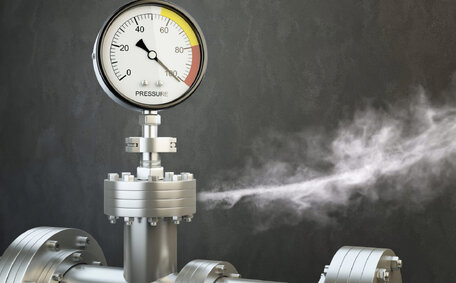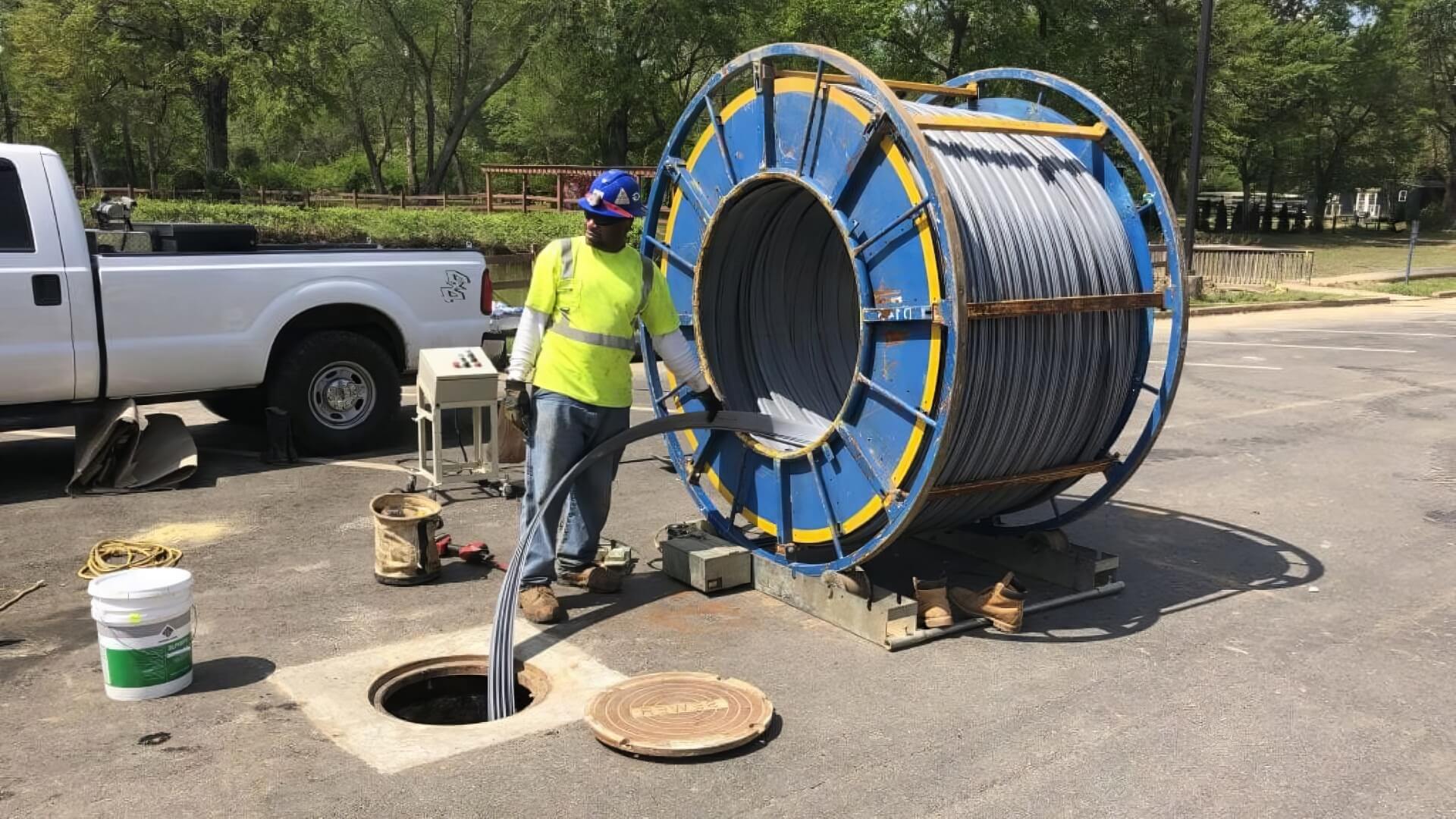Introduction to Natural Gas and Its Uses
Comprising mainly methane, natural gas is a fossil fuel developed beneath the Earth’s surface. It’s a popular fuel choice for many Australian homes and businesses because it’s efficient, abundant, and burns cleaner than other fossil fuels.
In Guildford, households utilise main gas for cooking, heating, hot water, air conditioning, and occasionally for generating electricity.
- Cooking and water heating
- Heating residential and commercial spaces
- Operating gas fireplaces
- Powering appliances such as clothes dryers
- As an energy source for electricity generation
Explore our comprehensive analysis to understand how natural gas, when compared to other energy options like oil, excels in emitting fewer pollutants during combustion. This presents natural gas, including shale gas, as a clean energy frontrunner in efforts to combat climate change, being one of the cleaner fossil fuels to reckon with today. However, leaks and Incorrect handling can cause significant risks. In this discussion, we’ll talk about key safety measures, the benefits, and responsible use of natural gas.
The Benefits of Using Natural Gas
Your natural gas offers several key benefits that solidify its popularity as a fuel choice:
Efficiency
Natural gas appliances, from furnaces to water heaters and kitchen ranges, are renowned for their superior efficiency. These appliances are more energy-efficient than their electric, LP gas, or oil counterparts. Their efficiency is associated with cleaner energy usage, potentially offering savings on utility costs for users.
Abundant Supply
The gas industry in Australia gains traction as natural gas development from fields to gas wells ramps up with hydraulic fracturing techniques, echoing the movements seen in the United States and elsewhere. Models estimate that natural gas reserves are substantial, potentially providing over a century of supply.
Lower Emissions
Compared to coal or oil, burning natural gas reduces carbon dioxide emissions by up to 50%, contributing to lower greenhouse gases. This leads to a diminished presence of hazardous air pollutants, securing its position as one of the cleaner fossil fuel options presently on offer.
Endorsed as a Transitional Fuel
Major energy companies like ConocoPhillips promote natural gas as a sensible bridge toward renewable energy - a transitional fuel from higher-polluting energy sources like diesel and heavy fuel oils to zero-emissions renewable sources like solar and wind.
Health and Safety Considerations with Natural Gas
While natural gas has several advantages, there are some health and safety risks to be aware of. The primary concerns with natural gas are:
Carbon Monoxide
Carbon monoxide (CO), an odourless and colourless gas from incomplete combustion of natural gas, poses a serious public health risk. Exposure to carbon monoxide can severely affect health by binding to blood cells and impeding oxygen transport. Poor ventilation while operating appliances can compromise indoor air quality and potentially lead to natural gas poisoning through perilous accumulations.
Nitrogen Dioxide
Burning natural gas can also produce nitrogen dioxide (NO2) and particulate matter measured in parts per million (PM2.5). Respiratory conditions like asthma can be exacerbated, impacting human health detrimentally, by elevated levels of air pollution from such emissions. Proper ventilation mitigates this.
Methane Leaks
Methane from unburned natural gas accumulating in confined spaces is a significant health risk, as identified by leading health experts. Being lighter than air, it can displace oxygen, potentially causing headaches and posing an explosion risk at high concentrations.
To safely enjoy the benefits of natural gas, follow these important tips:
- Service gas appliances annually to detect leaks or other issues
- Always do use range hoods when operating your gas stove to maintain adequate airflow within your home
- Install carbon monoxide detectors
- Familiarise yourself with safety tips and signs of a gas leak, such as the distinctive rotten egg odour
- Ring up the gas company or emergency services should there be no delay in your suspicion of a potential issue
Your gas safety is well managed when you implement safety tips and adhere to Energy Safe Victoria’s guidelines, including regular appliance servicing by a licensed gasfitter.
Detecting Natural Gas Leaks
Promptly detecting gas leaks is essential for safety and health. Natural gas distribution systems have additives to give gas a distinct "rotten egg" odour for easy detection. Be vigilant about this odour and take a moment to watch our video for comprehensive guidance on addressing any lurking gas presence that could impact your home business environment.
Signs of a Natural Gas Leak
Beyond the telltale rotten egg smell, consider what to do when these additional signs of a gas leak emerge:
- Hissing or whistling noises near gas appliances
- Dirt being blown into the air from underground gas lines
- Bubbles in standing water over gas lines
- Flames coming from the ground or damaged gas equipment
- Unusually high gas bills could signify a leak in your hot water or other gas systems
Natural gas detectors are valuable tools for identifying potential leaks. These will sound an alarm if they sense combustible gas.
What to Do if You Suspect a Leak
If you smell gas or suspect a leak, Energy Safe Victoria advises immediate evacuation without using electronics or creating sparks.
Addressing leaks promptly has markedly reduced incidents, although ongoing vigilance is essential.
For added assurance, Guildford Plumbing provides meticulous gas leak inspections, as our seasoned expert elucidates, maintaining the highest standards of safety and precision. Our licensed gasfitters utilise advanced leak detection technology to swiftly pinpoint issues and suggest the required repairs.
Responding to a Suspected Natural Gas Leak
Take immediate steps if you suspect a natural gas leak in your home or business:
- Evacuate to an upwind location with fresh air away from the suspected leak site.
- Steer clear of any action that might ignite natural gas, such as flipping switches on appliances, lights, or even using mobile phones.
- Reach out to your gas supplier or emergency services once you’ve moved to a safe distance.
- Call your local gas utilities provider or a licenced professional such as Guildford Plumbing.
- Do not re-enter the property until the leak is found and stopped and gas levels tested safe.
Trying to repair gas leaks without proper training is extremely dangerous. Our proficient technicians use devices to detect gas, meticulously pinpointing and rectifying any points where gas might leak from your system.
Our team is on call 24/7 to respond to gas faults, emergencies, and to assist with suspected gas leaks. Call our emergency hotline immediately for urgent assistance and to prevent risks of fire, explosion, or carbon monoxide poisoning.
Tips for Safe Natural Gas Usage
Ensuring it’s safe to operate natural gas appliances reduces the risk of leaks, explosions, and exposure. Follow these tips from Energy Australia when using natural gas in your Guildford home or business:
- Ensure your gas appliances, especially those with a pilot light, are entrusted to a licenced professional like Guildford Plumbing for installation and service to prevent faulty setups.
- Check flexible gas lines for wear/damage and replace connections older than 15 years.
- Never place flammable items close to your natural gas appliances or pipelines.
- Never leave gas appliances running without supervision and make sure your trusty devices are turned off when not actively in use.
- It’s absolutely imperative to be aware of the location of your meter and learn how turn off your gas supply swiftly in the precarious event of a leak.
- Take time to learn how to utilise and manage ventilation according to the manufacturer’s instructions for gas appliances.
- Install carbon monoxide detectors for early warning of exposure risks from combustion byproducts.
- Be vigilant for signs such as the rotten egg smell and reach out to our emergency service to check your gas system promptly if noticed.
Being attentive and proactive reduces the risks involved with natural gas use. Guildford Plumbing offers additional tips for safe operation during appliance servicing to help identify potential issues early.
Hiring Professional Gas Fitters
Engage a recognised authority-licensed gas fitter for safe and compliant installation or service of natural gas appliances. Gasfitting is complex work that requires extensive training and licencing to ensure compliance with plumbing codes and standards.
At Guildford Plumbing, our credentialed gasfitters engage in stringent training, akin to programmes developed by scientist pse healthy energy, to align with the licensing criteria of the NSW Fair Trading Department. We stay up to date on the latest gas technologies, codes, and safety best practises - something DIYers may overlook.
Benefits of Hiring Licenced Gas Fitters
- Ensure gas appliances are set up safely and correctly to prevent leakage, explosions, or CO poisoning.
- Ensure the gas used in appliances is regulated for pressure, properly sized, and ventilated to maintain optimal efficiency and air quality.
- Detect potential issues early during routine servicing and maintenance.
- Repair faults promptly and correctly to avoid catastrophic system failures.
- Stay compliant with changing safety standards and regulations.
Without proper licencing for gas appliance installations, gasfitters risk heavy fines for non-compliance. This can affect insurance coverage and consumer safety if the work then needs redoing by qualified technicians. Don’t take chances with unqualified handymen.
Contact Guildford Plumbing to have your gas appliances installed or serviced by fully certified gas engineers you can trust. We also offer 24/7 emergency leak response.
Industry Regulations and Standards
Natural gas use in Australia is governed by strict regulations and standards aimed at ensuring safety, reliability, and strong environmental protection. Overseen on a national level by bodies like Standards Australia, and regionally by state authorities, these help manage risks.
Standards Australia
Standards Australia ensures quality, safety, and regulatory compliance in sectors including gas and energy by developing technical specifications. Some examples include:
- AS/NZS 5601.1: Gas installations Part 1: General installations
- AS 4575: Gas distribution networks and composite pipes
State/Territory Gas Authorities
Individual states and territories also govern local gas regulations through bodies like Energy Safe Victoria (ESV). They oversee compliance by:
- Licencing qualified gasfitters
- Setting, monitoring and enforcing safety codes
- Conducting gas infrastructure inspections
- Educating consumers on proper use and risks
Adhering to these stringent gas regulations ensures appliances are correctly installed and emissions/leak risks are minimised. At Guildford Plumbing, all our licenced gasfitters comply with state and national standards. We stay up to date on evolving safety codes and requirements so consumers can use natural gas reliably and responsibly.
Frequently Asked Questions
Is natural gas safe for my home?
Natural gas is generally quite safe for home use when appliances are properly installed by licenced professionals, ventilated, and maintained. Safety features like mercaptan odorants added to gas make leaks quickly detectable. Gas detectors also help monitor risks.
What causes gas leaks?
A natural gas can become a risk with leaks arising from damaged lines, aging appliances, earth movements, or even accidents that rupture pipes, reinforcing the need to dial before dig.
How often should gas appliances be serviced?
Licenced technicians should inspect gas appliances annually, with more frequent servicing for high-use appliances. This ensures any leaks, damaged parts, ventilation issues or other problems are found before posing risks.
Should I install carbon monoxide detectors?
Installing carbon monoxide detectors is highly recommended to monitor potentially dangerous levels of CO in your home. They provide alerts to dangerous exposure levels from incomplete combustion or contamination that could otherwise be deadly.
How can I use natural gas more safely and efficiently?
To use natural gas safely and efficiently, ensure proper appliance ventilation, timely gas line replacement, safe storage of flammables, regular leak monitoring, and functioning detectors.






